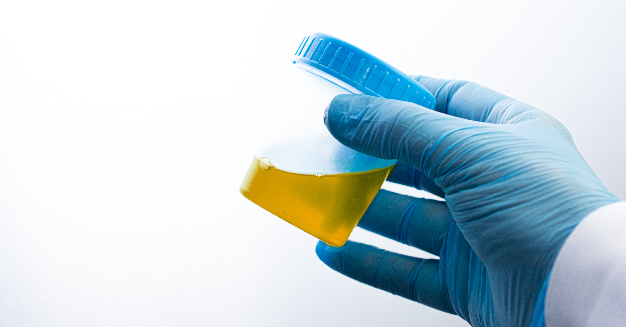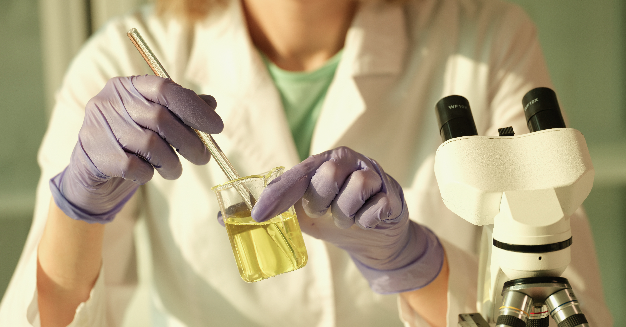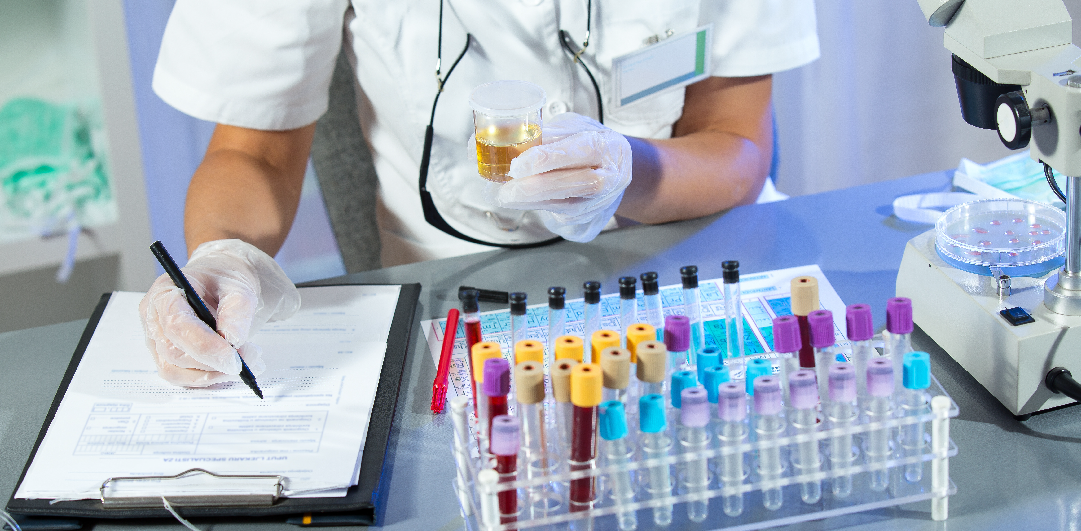What is an Urinalysis?
A urinalysis is a diagnostic test that analyzes a urine sample for various substances, such as cells, proteins, glucose, and chemicals. This test can provide valuable insights into an individual’s overall health and help detect a wide range of medical conditions, including diabetes, kidney disease, and urinary tract infections (UTIs). A standard urinalysis typically includes three main components:
Visual Examination
The color and clarity of the urine are observed, along with any unusual particles or sediment.
Chemical Examination
Chemical tests are performed to detect the presence of specific substances, including glucose, protein, blood, ketones, and bilirubin.
Microscopic Examination
A microscope is used to examine the urine sediment, which may reveal the presence of red and white blood cells, bacteria, crystals, or other abnormalities.

Can STD Infections Be Detected in a Urinalysis?
While a urinalysis can provide valuable information about an individual’s health, it is not a primary method for diagnosing most STDs. However, there are a few exceptions. Some sexually transmitted infections can be detected using a urine test, making it a convenient option for screening purposes. These STDs include:
Chlamydia
Chlamydia is one of the most common STDs, and it can often be detected through a urine test. The test looks for the presence of Chlamydia trachomatis DNA in the urine sample.
Gonorrhea
Similar to chlamydia, gonorrhea can also be identified through a urine test. The test searches for Neisseria gonorrhoeae DNA in the urine.
Trichomoniasis
Although less common than chlamydia and gonorrhea, trichomoniasis is another STD that can sometimes be detected using a urine sample.
It’s important to note that while these three STDs can be identified through urinalysis, other STDs such as syphilis, herpes, and HIV require different testing methods, such as blood tests or swab tests of genital sores or oral lesions. This is due to the fact that not all STDs and STIs can be contracted through sexual contact, such as oral sex, anal sex, and activities with multiple, different sexual partners.
Other Diseases Detectable Through Urinalysis
Urinalysis is not limited to detecting STDs; it can also provide insights into various other medical conditions:
Diabetes
High levels of glucose (sugar) in the urine can be indicative of diabetes or poorly controlled blood sugar levels.
Kidney Disease
Urinalysis can help assess kidney function by detecting abnormal levels of proteins, blood cells, and other substances in the urine.
UTIs
Urinary tract infections are often diagnosed through urinalysis, as the presence of bacteria, white blood cells, or nitrites in the urine can indicate an infection.
Dehydration
The color and concentration of the urine can provide information about an individual’s hydration status.
Liver Disease
Elevated levels of bilirubin in the urine may indicate liver problems or jaundice.

The Accuracy of Urinalysis for STD Detection
The accuracy of urinalysis for detecting STDs depends on several factors, including the specific test used, the timing of the test, and the presence of the infection in the urinary tract. Generally, when conducted correctly, urine tests for chlamydia and gonorrhea have a high level of accuracy. However, it’s essential to consider the following:
Timing
Urine tests are most accurate when performed at the right time. For example, if the urine test is done too soon after exposure to an STD, it may yield false-negative results because the infection has not yet had time to establish itself in the urinary tract.
False Positives and Negatives
While urine tests for chlamydia and gonorrhea are highly accurate, there is still a small possibility of false-positive or false-negative results. This is why confirmatory testing may be necessary in some cases.
Limited to Specific STDs
Urine tests are primarily effective for detecting chlamydia, gonorrhea, and, in some instances, trichomoniasis. They are not suitable for detecting all STDs, so healthcare providers may recommend additional tests based on individual risk factors.
Urinalysis at OnPoint Labs
So, can a regular urinalysis detect STD infections? A regular urinalysis is a valuable diagnostic tool that can provide insights into various medical conditions, including some sexually transmitted infections. Chlamydia, gonorrhea, and trichomoniasis can be detected through urine tests, making it a convenient option for screening these specific STDs. However, it’s important to remember that not all STDs can be identified using this method, and the accuracy of the test depends on various factors.
Regular STD screening is crucial for maintaining sexual health and preventing the spread of infections. Therefore, individuals should consult with healthcare professionals to determine the most appropriate testing methods based on their risk factors and symptoms. Additionally, practicing safe sex, using barrier methods like condoms, and having open and honest discussions about sexual health with partners are essential steps in preventing STDs.
If you’re local to the Houston area and need a place to get a urinalysis done, OnPoint Labs can assist. Visit our website today to learn more about our urinalysis test and other services we provide.


